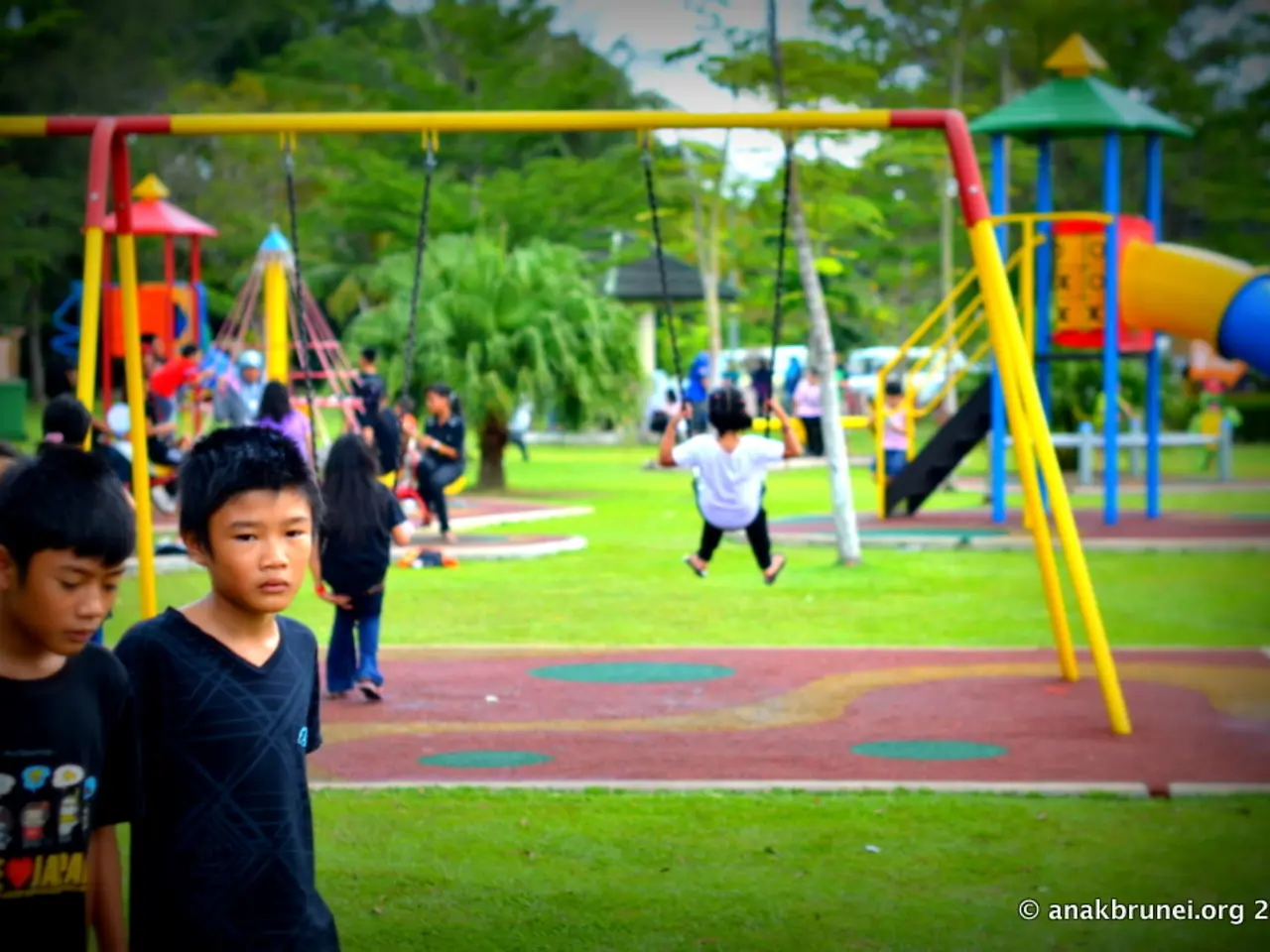Engaging Outdoor Role-Playing Exercises Encouraging Emotional Intelligence and Developing Practical Life Skills
In the heart of nature, where the air is fresh and the surroundings are picturesque, a unique form of learning and development unfolds. Nature's Theater and Adventure Quest Storytelling are transforming outdoor spaces into immersive learning environments that promote emotional intelligence development in children.
These creative and engaging activities offer a wide range of benefits. Pretend play scenarios, team games with role negotiation, imaginative storytelling in nature, outdoor problem-solving role plays, dramatic play involving caring for others, role-based cooperative sports or movement games, and conflict resolution role plays in outdoor settings are just some of the activities that encourage children to experiment with emotions, practice social skills, and develop emotional resilience.
Pretend play scenarios, such as acting as doctors, parents, or superheroes, provide a safe environment for children to express and manage emotions, practice empathy, and take others’ perspectives. Team games with role negotiation foster social negotiation, sharing, and conflict resolution skills. Imaginative storytelling in nature allows children to reenact or invent stories that involve emotional expression and self-regulation. Outdoor problem-solving role plays, like building shelters or navigating mazes as a team, encourage cooperation, creative thinking, and patience.
Dramatic play involving caring for others, such as pretending to comfort a peer or care for “injured” friends, fosters empathy and perspective-taking. Role-based cooperative sports or movement games build emotional regulation, resilience, and social interaction skills through physical play. Conflict resolution role plays in outdoor settings require negotiation, compromise, and understanding others’ feelings, providing real-world conflict resolution opportunities.
Adventure quest storytelling transforms outdoor spaces into immersive learning environments where children develop emotional resilience through character-driven narratives. The campfire setting naturally fosters social awareness and emotional expression. Storytelling around the campfire encourages children to share personal experiences and practice identifying emotions. Emotion-focused prompts guide storytelling sessions to specific feelings, helping children recognize and articulate complex emotional experiences.
The backyard can be transformed into a living stage for children to develop deep emotional connections through nature-based character development. Children who create characters inspired by natural elements learn to embody emotional traits associated with those elements, such as patience and adaptability. Group wilderness challenges require collaborative problem-solving that builds emotional awareness and teamwork skills.
Emotional Weather Mapping connects inner feelings to outdoor elements, using weather patterns as metaphors for emotions. Campfire rules like listening without interrupting and passing a talking stick teach children patience, active listening, and respect for others' emotional sharing. Outdoor role-playing activities, including Nature's Theater and Adventure Quest Storytelling, help children build emotional resilience through character-driven narratives and failure as a storytelling tool.
Forest council meetings transform outdoor spaces into collaborative decision-making environments where children practice democratic leadership and consensus-building skills. Environmental storytelling naturally builds empathy by connecting personal experiences to the natural world around them. "Pause moments" during outdoor performances help children distinguish between their own feelings and their character’s emotions.
Children naturally connect their character's emotions with specific natural elements they observe in outdoor roleplay activities. Animal roleplay naturally teaches perspective-taking as children embody different creatures' survival needs and social behaviors. Outdoor environments provide authentic opportunities for developing emotional intelligence through real-world conflict resolution.
Outdoor roleplay slows down communication, allowing children to practice mindful speaking and listening skills. Nature walks can become listening laboratories when you designate "sharing spots" at fallen logs or scenic overlooks. Supportive responses after each story help children recognize emotions in others and respond with compassion rather than judgment.
These outdoor role-playing activities offer a unique and engaging way for children to develop emotional intelligence, fostering a deep connection with nature and promoting social and emotional growth.
Home-and-garden activities could involve creating outdoor learning environments similar to Nature's Theater and Adventure Quest Storytelling, providing children with opportunities to experiment with emotions, practice social skills, and develop emotional resilience.
In the realm of education-and-self-development, one might consider integrating elements from the aforementioned outdoor learning environments into curricula, promoting hands-on, nature-based character development that aids in the development of emotional intelligence and social skills.
Sports, such as team games or cooperative sports, can also serve as a means to build emotional regulation, resilience, and social interaction skills, as they provide physical play opportunities that reinforce the lessons gleaned from the imaginary world of Nature's Theater and Adventure Quest Storytelling.
Life-style choices, therefore, could include seeking out and engaging in outdoor activities that integrate learning, character development, and social interaction, offering a holistic approach to personal growth and development.




